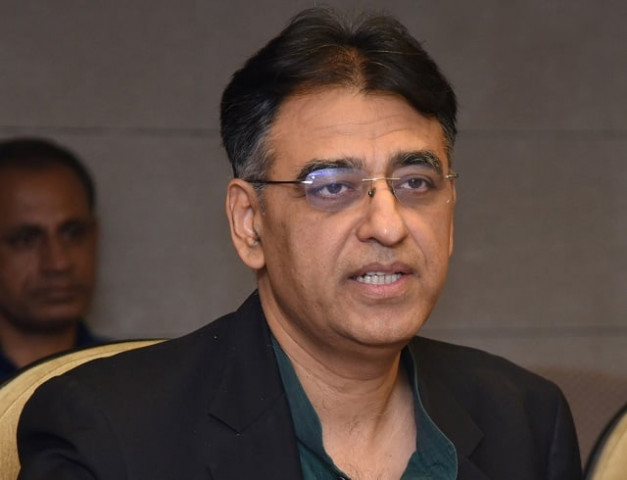Asad Umar to head NA finance committee
Former finance minister again rejects offer to rejoin PM Imran's Cabinet

Former finance minister Asad Umar. PHOTO: AFP
The decision was taken after Prime Minister Imran Khan and Foreign Minister Shah Mahmood Qureshi held separate meetings with the former finance minister to convince him to rejoin the federal cabinet.
While Umar refused their request to become a part of the cabinet, he expressed willingness to head the standing committee on finance.
Consequently, PM Imran issued directives to the Pakistan Tehreek-e-Insaf's (PTI) Chief Whip Amir Dogar, who then informed the incumbent committee chairman, PTI MNA Faizullah.
Umar resigned from the federal cabinet in April after PM Imran removed him from the finance ministry and offered him the energy ministry.
'Intelligent' Asad Umar will return to cabinet soon, says PM
However, the prime minister has been adamant that Umar would rejoin his team of ministers. “Asad Umar is intelligent and he is precious [asset]. He will return to the cabinet soon,” Khan told senior journalists recently at the Prime Minister’s Office.
Umar's removal has been the subject of much controversy, particularly in the backdrop of Pakistan's ongoing negotiations with the International Monetary Fund (IMF).
Pakistan Peoples Party’s (PPP) senior leader Syed Khursheed Shah recently claimed that Umar was removed as finance minister on IMF's insistence.
In a video statement, the former opposition leader in the National Assembly claimed that Reza Baqir, the IMF economist who was last week appointed as governor of the State Bank of Pakistan (SBP), was used as a middleman to convey the international lender’s reservations over Umar’s performance.
“According to my information, Reza Baqir – since he was with the IMF in Egypt – was used in the move to sack Umar. Through him [Baqir] messages were conveyed that the IMF was not happy with Umar,” said Shah.
“IMF representatives thought he [Umar] was ill-prepared at times or simply did not know enough, and there would be no breakthrough in negotiations if he was not removed,” he added.



















COMMENTS
Comments are moderated and generally will be posted if they are on-topic and not abusive.
For more information, please see our Comments FAQ